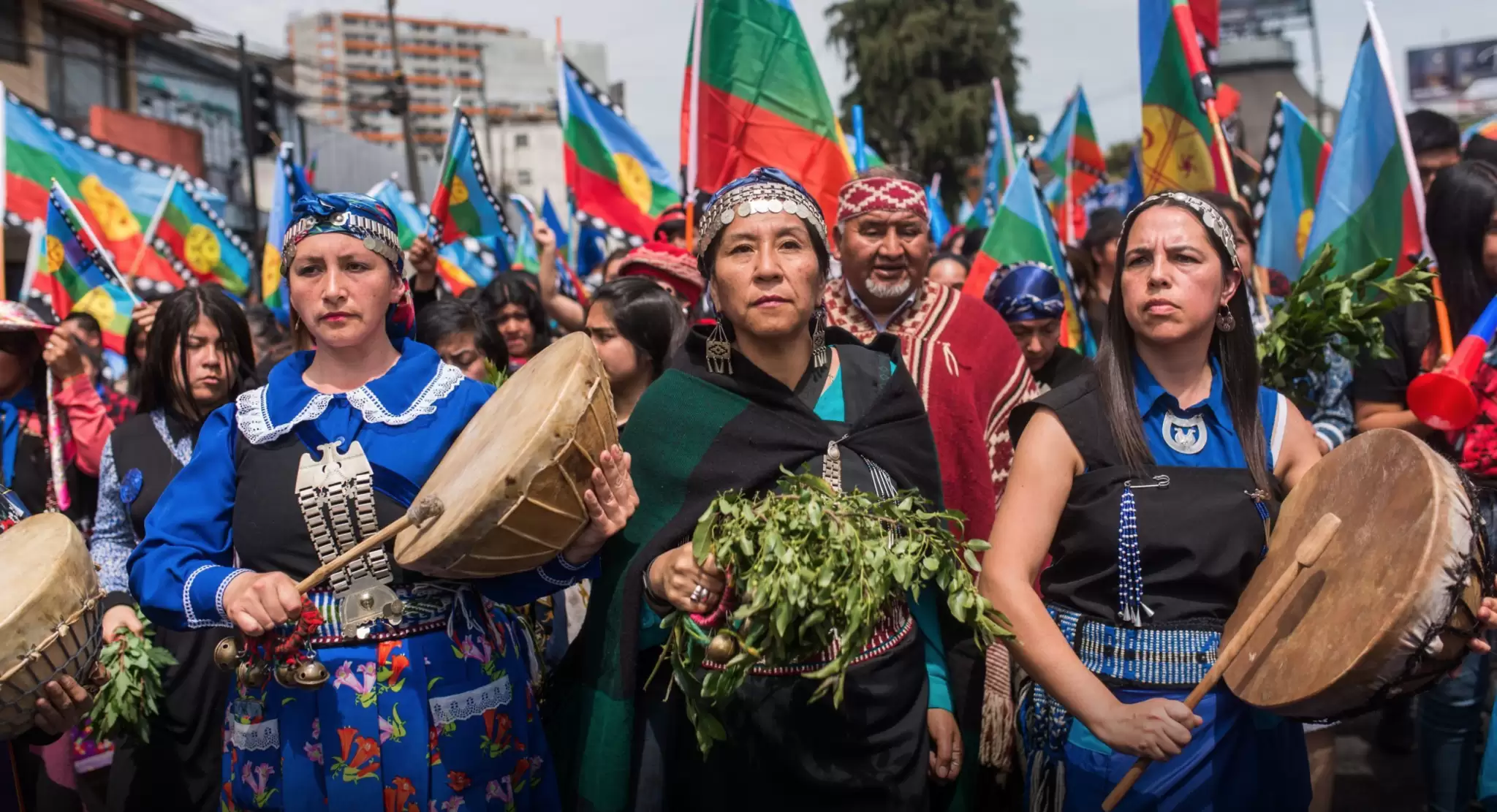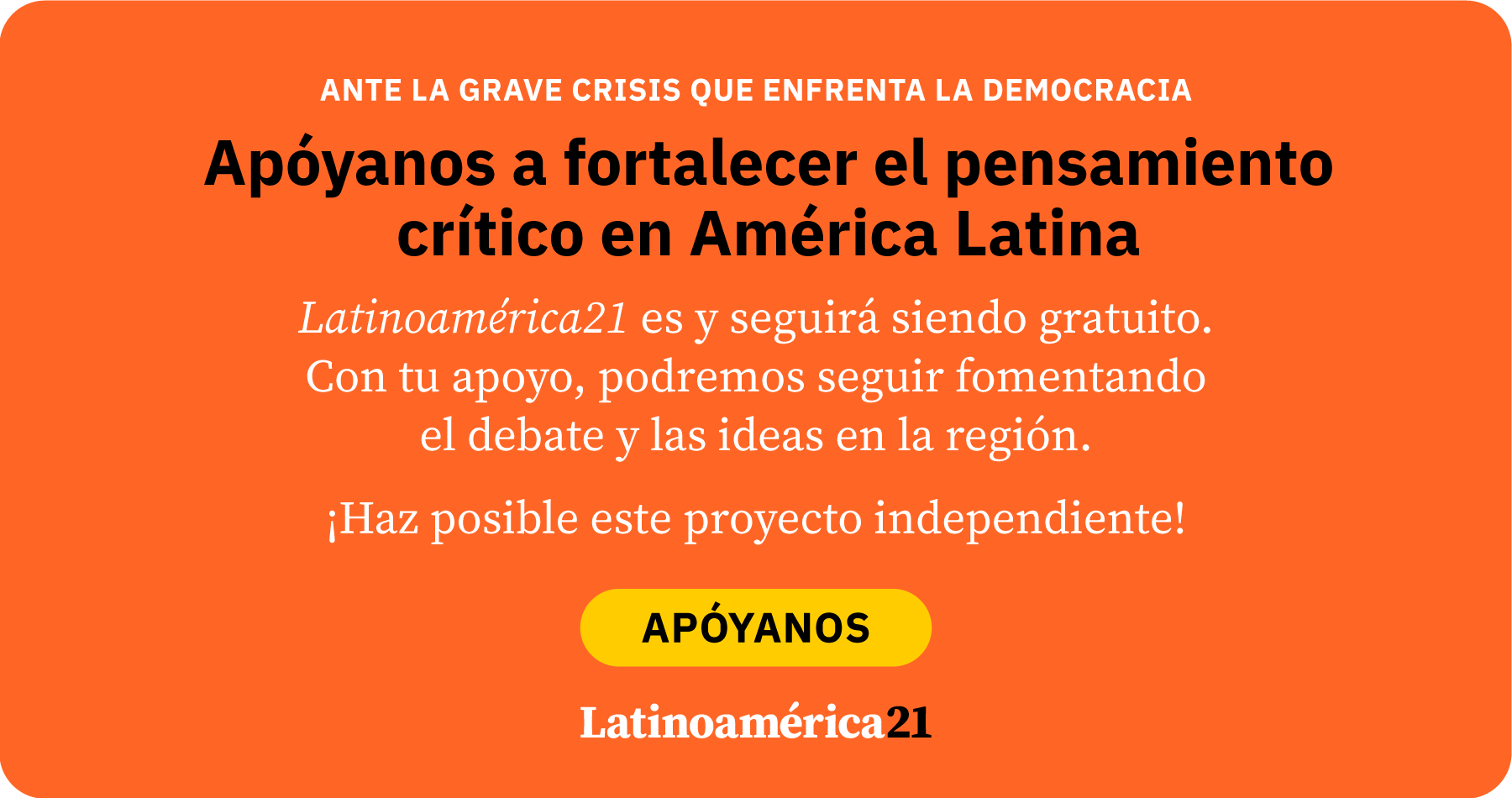
La derrota del apruebo en el plebiscito fue aplastante e inapelable. El 63% de los chilenos se opuso a la propuesta de texto constitucional que la Convención Constitucional había elaborado durante casi un año. El mal trabajo de la Convención, la soberbia de sus integrantes, los errores y horrores de algunos convencionales, las fake news, la ideología o las políticas identitarias son algunas de las razones que se han argüido para explicar, utilizando una jerga futbolera, la derrota por goleada del apruebo. Sin embargo, sectores de la clase política, abierta o soterradamente, apuntan señalan el reconocimiento de la plurinacionalidad y una supuesta excesiva ambición de los representantes de los pueblos indígenas, quienes lograron asentar con éxito sus demandas en el texto, como uno de los factores importantes de la derrota. Siguiendo con la analogía, “jugaron como nunca, y perdieron como siempre”.
Lo anterior se torna más relevante, teniendo en cuenta que incluso en zonas de mucha población indígena ganó el rechazo a la propuesta. Así, cabe preguntarse, ¿qué pasará con las demandas y la representación indígena? Muchas de estas eran parte del texto plebiscitado.
El proceso nació preñado de ilusión. Por primera vez en más de doscientos años de historia republicana de dominación y colonialismo, los pueblos indígenas gozarían de representación propia. Aquella quimera del siglo XX de lograr y tener voz propia en los asuntos que les conciernen se volvía real. Empero, fue un espejismo efímero, un fugaz anhelo que pende hoy de un hilo, ya prácticamente cercenado desde la raíz.
La Convención Constitucional tuvo 17 constituyentes indígenas, siete mapuches, dos aimaras y un rapanuí, diaguitas, changos, atacameños, quechuas, collas, kawéscares y yaganes: todos elegidos a partir de escaños reservados. Es decir, el Estado chileno, reconociendo la desprotección y desigualdad al obtener la representación propia, otorgó a los pueblos indígenas la certeza de poder participar en la instancia democrática más relevante en décadas, siendo, pues, protagonistas, a diferencia de lo que había sucedido hasta entonces, con voz y voto propios.
Pero para ser más precisos, sin la lucha activa del propio movimiento indígena, nada hubiese sido posible. Visto en retrospectiva, esta representación podría parecer como una apertura de la clase política hacia las demandas de los pueblos indígenas. No obstante, una mirada más pausada evidencia que el proceso por el cual se llegó a los escaños reservados replicó las dinámicas en cuanto a la forma en la que se han llevado a cabo las políticas públicas sobre los pueblos indígenas. En otras palabras, de arriba hacia abajo, se trata de políticas indigenistas que han reemergido con posterioridad a la derrota electoral de la propuesta.
Pese a ello, los 17 escaños fueron aprobados y demostraron que, a pesar de las diferencias o divisiones que pudiesen existir entre ellos, fueron capaces de agenciar acuerdos tanto internos como externos. Pudieron ubicarse en todas las comisiones de la Convención, aunque al comienzo solo los querían en una comisión ad hoc y llegaron a posicionar a la doctora mapuche Elisa Loncon como presidenta de la Convención durante los primeros seis meses.
De esta manera, los constituyentes indígenas plasmaron en el texto algunas demandas históricas de los pueblos indígenas sobre el territorio, los recursos naturales, los derechos colectivos y, por supuesto, el reconocimiento de Chile como un Estado plurinacional. Jugaron de visita y obtuvieron un resultado beneficioso.
Esto no pasó desapercibido para la derecha. Representando parte medular de la campaña en contra de la propuesta constitucional, quienes se oponían al texto argumentaban que los indígenas tendrían privilegios, que la Constitución era indigenista (usando el término de manera malintencionada) y una serie de razonamientos directamente falaces y racistas.
Antes de las elecciones, hubo quienes hablaron del brexit chileno. Sin embargo, pareciera que se pudiese afirmar que se asemejó más al referéndum de independencia de Escocia de 2014, donde la campaña contra la independencia también se basó en argumentos falaces. Pese a lo anterior, resulta completamente imposible explicar la magnitud de la derrota tan solo por la campaña de desinformación. Son múltiples los factores que lo pueden explicar, y el indígena, sin duda, es uno de ellos, porque remite al racismo instalado en parte importante de la sociedad chilena. Ideología racializada e impuesta por las clases dominantes.
Con el triunfo arrollador del rechazo, la defenestración a lo que representa la plurinacionalidad y lo indígena ha sido prácticamente transversal. Desde la delectación de la derecha chauvinista y extrema hasta argumentaciones más sosegadas de la izquierda tradicional, todos remiten a una conclusión similar: restar poder e influencia a los pueblos indígenas en una potencial nueva instancia constituyente, y retrotrayendo todo avance al statu quo de dominación colonial y racial decimonónico.
Las propuestas que se están debatiendo para otro eventual proceso constituyente reflejan lo anterior, ya sea restando escaños a los representantes indígenas o simplemente eliminándolos, como lo hace la propuesta de la derecha conservadora. Esto da cuenta de que las élites de los partidos en las negociaciones culpan de la derrota a la actuación de los representantes indígenas. Algunos incluso han ido más allá, exigiendo autocrítica y que debiesen pedir perdón por lo sucedido. Asimismo, para una posible nueva Constitución, ya se habría descartado la plurinacionalidad
Independientemente del descaro de este tipo de afirmaciones, el análisis acerca del papel de los convencionales indígenas debe hacerse, pero este debe ser constructivo y real, alejado del ataque personal interesado que puebla los medios tras el plebiscito. Pero, sobre todo, la caza de brujas en busca de un forzado mea culpa no es conducente a nada, sino que representa solo un capítulo más en la irredargüible relación de dominación y racismo.
Volviendo a la analogía futbolera, el que deban pedir disculpas por su actuación es tan absurdo como exigirle a Uruguay que le pida perdón a Brasil por ganarle de visita en el Maracaná en 1950, siendo minoría y con el público en contra. Y en el caso de los representantes indígenas, además jugando con reglas impuestas.


